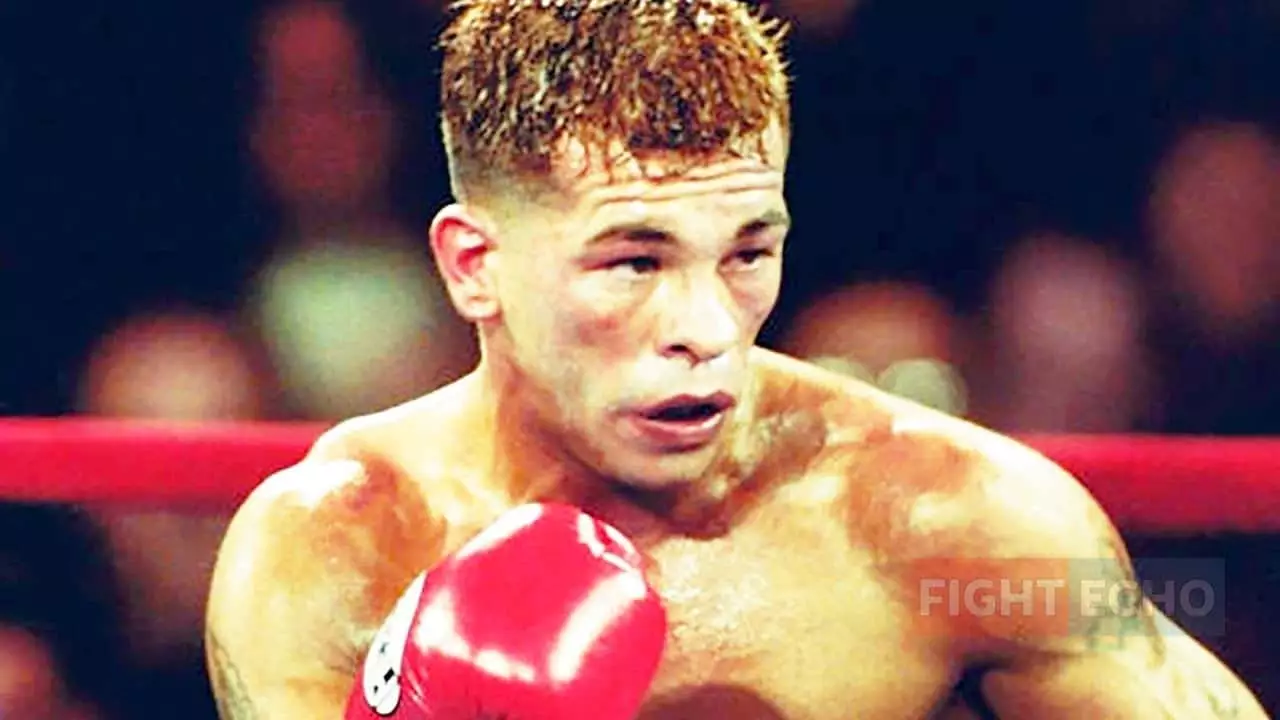When boxing fans eagerly gathered on June 25, 2005, at Boardwalk Hall in Atlantic City, they anticipated an epic contest between two combatants from vastly different realms. On one side was Arturo Gatti, a warrior known for his insatiable will to win. On the other, Floyd Mayweather Jr., nicknamed “Pretty Boy,” was a rising star whose technical prowess had begun to captivate the boxing world. The fight was marketed as “Thunder & Lightning,” intending to showcase Gatti’s explosive fighting style against Mayweather’s lightning-fast precision. However, the fight turned into an unwelcome reality check for Gatti fans, as what unfolded was more of an exhibition than a true contest.
Prior to the bout, Gatti’s legacy as one of boxing’s most thrilling fighters loomed large. He had faced and triumphed over formidable foes with a blend of heart, grit, and occasional artistry inside the ring. Yet against Mayweather, who entered the ring boasting an undefeated record, Gatti found himself ill-prepared for the onslaught that was to come. The clash should have been a dramatic battle of wills, but it quickly transformed into a lopsided affair that showcased the chasm in boxing acumen between the two fighters.
Mayweather’s Unrivaled Skill Set
From the outset, Mayweather displayed a level of skill and control that rendered Gatti’s celebrated resilience ineffective. With each round, Floyd’s strategy unfurled—a tapestry of speed, movement, and defensive skills that left Gatti swinging at shadows. Observers noted Mayweather’s ability to dodge punches effortlessly; he transformed the ring into his own culinary battleground, where he prepared and served a feast of precise jabs, body shots, and powerful hooks that consistently found their mark.
This dominance wasn’t merely about landing punches; it was about the mental game. Floyd’s confidence was palpable, competing with a fighter who thrives on emotion rather than analytical thinking. Gatti’s efforts were hampered by his own defensive lapses, illustrated starkly when he dropped his hands and turned his gaze away from Mayweather, inviting disaster and subsequently getting knocked down. It was a moment that crystallized the essence of the fight: not just a failure to execute a game plan, but an utter capitulation in the face of a fundamentally different caliber of boxing.
The Aftermath: A Shift in Legacies
The bout ended in a decisive sixth-round TKO, a bitter pill to swallow for the ardent Gatti fans who had championed him through many battles. Mayweather’s victory not only solidified his place as the sport’s pound-for-pound elite but marked a definitive moment in boxing history—a moment that juxtaposed the heart of a fighter against the head of a tactician. Gatti, who had fought wars and come back from seemingly insurmountable odds, was reduced to the role of a stepping stone, highlighting the cruel nature of competition at the highest levels.
In hindsight, the fight served as a transformative episode for Mayweather, elevating his status from a promising boxer to a bona fide pay-per-view sensation. His apology to Gatti for labeling him a “club fighter” felt insincere, especially considering how outclassed Gatti appeared throughout the match. The reality became evident: while Gatti’s fans cherished his explosive style and indomitable spirit, it was Mayweather’s technical supremacy that would define the night and the careers that followed.
The Legacy of the Fight: The Nature of Boxing
The bout between Mayweather and Gatti remains a pertinent example of what boxing often presents—a vivid illustration of varying philosophies on combat. Fans often romanticize the idea of heart and resilience, but technical skill and fight IQ are irrefutable determinants of success at higher echelons. While Gatti was a hero to many due to his thrilling performances and dramatic comebacks, Mayweather’s consummate skill reshaped the boxing landscape.
Mayweather left the ring that night with more than just a victory; he staked a claim in boxing history that would continue to evolve along with his career. Gatti, while perhaps diminished in status among some, continued to be a beloved figure—a symbol of the raw, unvarnished essence of boxing that transcends the technical aspects. Both fighters represent the dichotomy within the sport, reminding us that while many fight for glory, only a few claim it decisively.


Leave a Reply